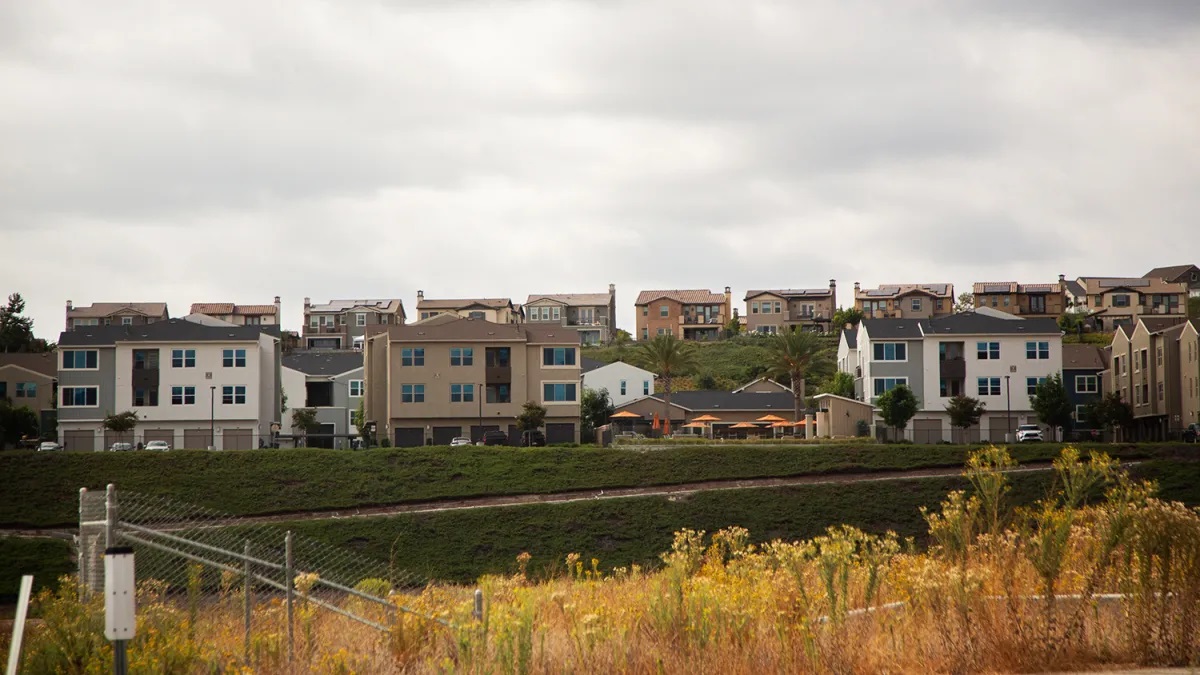
What Will OC’s Landscape Look Like in 10 Years? Cities Struggle With Housing Plans

What will Orange County’s landscape look like in 10 years and where will its residents live during a worsening housing crisis?
It’s a situation that’s pitting local officials against state housing officials.
Some OC city council members say it should be up to local officials to decide how the county is developed – setting up a battle of sorts against Sacramento housing officials.
State officials want the county to have much more housing as they struggle to address a statewide housing crisis and they’re putting pressure on local officials to zone for a wave of affordable homes.
Housing advocates say building new affordable homes will not only help address the housing shortage, but help tackle the county’s homeless crisis and help people struggling with rent in a county in desperate need of low income housing.
“For a lot of working families, which is a large segment of our population, housing continues to be a big challenge. When you’re spending more than 50-60% of your income towards rent, then that just contributes to housing instability and economic instability,” Cesar Covarrubias, the executive director of the Kennedy Commission, said in a phone interview.
In Orange County, 285,102 of residents of the county’s nearly 3.2 million people live in poverty and, according to the U.S. Census.
The same data shows there are 1,138,966 housing units in the county.
“When we were talking about being able to afford housing in Orange County, working families have to make somewhere in the neighborhood of $42 an hour to be able to live in Orange County. So that’s not a reality for a lot of working families,” he continued.
Covarrubias added that when families are spending that much on housing it’s likely their other needs like transportation and food are not sufficiently being met.
§
Meanwhile, Orange County city officials are having trouble getting the state to approve plans intended to spur the creation of tens of thousands of new affordable homes – with officials also wrestling with the idea of how much their local landscapes will change from the new buildings.
[Read: Some North OC Cities Face an Identity Crisis When Building New Housing]
Newport Beach had their original draft rejected, drawing some complaints from City Councilman Will O’Neill, who pointed out the city zoned for over twice as many homes as it needed to be compliant with state housing goals.
“When cities make a good faith effort and are still denied, and potentially punished, you lose faith in the process,” O’Neill said in a phone interview. “We’re part of a growing number of cities expected to rezone our entire cities by October, but what are we supposed to rezone it to? Our housing element has been denied, it’s unclear to me what housing element we would be rezoning to.”
O’Neill’s concerns are echoed by many city council members throughout Orange County who say the state’s housing goal is forcing them into a tough – if not impossible – situation.
[Read: New Housing Plans Pit OC Cities Against Sacramento Over State Mandated Housing Goals]
In fact, only two cities in Orange County have their plan approved by state officials – Yorba Linda and Irvine.
“HCD’s finding is based on, among other reasons, a robust rezone to facilitate housing, the commitment to remove certain constraints, and programs to Affirmatively Further Fair Housing (AFFH) which will facilitate housing mobility and create new housing opportunities,” reads a letter sent to Yorba Linda officials in April from the state’s Housing and Community Development department.
Yorba Linda, a city with about 68,000 residents, has to zone for 2,415 homes – 765 of which have to be for very low income families and 451 for low income families.
Irvine, a city with about 309,000 residents, has to zone for 23,610 new homes – 6,396 of which have to be for very low income families and 4,235 have to be for low income families.
Covarrubias said the Kennedy Commission has been reviewing and engaging with cities on their housing plans – known as housing elements – for the last year and a half.
He said that the state has been pointing out “deficiencies” in cities’ abilities to find sites for low income housing in their plans.
“Along with appropriate sites come strong policies and programs to ensure that the feasibility of affordable housing is more realistic and that’s been something that’s been missing,” Covarrubias said as to why cities have struggled to get their plans approved.
The Kennedy Commission has launched a tracker of the city’s housing plans in OC and where they are along the process including letters from the state on why their plans haven’t been approved yet.
Click here to view the tracker.
“There are quite a few other cities in their third, fourth revision at this point that we probably would expect in the next three, four months some other cities to come into compliance because they’re getting closer to meeting all the statutory requirements,” Covarrubias said.
The consequences for not having a compliant housing plan could result in loss of state grant money, loss of local control over development as well as legal action.
Huntington Beach’s plans are currently under review, according to the State’s Housing and Community Development department’s database on the plans.
“The rest have findings from HCD and will need to resubmit drafts or adopt addressing those findings for HCD’s review,” said housing department spokesperson Alicia Murillo in an email.
Click here to find out why your city’s housing plan has yet to be approved by the state for the 6th housing cycle.
§
It’s not just Orange County cities having difficulty getting their housing plans approved.
In Southern California, a region tasked with zoning for over 1.3 million new homes by 2029, only 14 of the nearly 200 cities in the area have a housing plan approved by state officials, according to the state’s database.
In Orange County, cities – together – have to plan for where over 180,000 new homes can be built between 2021-2029 in what some local officials say is an already built out county.
And over 75,000 of them have to be for very low to low income families.
If an OC family of four makes less than $67,750, they are considered to be a very low income family. If they make less than $108, 400 they are considered a low income family, according to the state’s housing and community development department.
In OC, the median income for a family of four is 119,100, according to the department.
The housing goals that city officials across OC have fought back against and have sparked calls from local officials for greater local control on zoning and housing issues.
But the state and Southern California Association of Governments – the regional board of elected officials the state tasked with doling out OC’s share of the 2.5 million new homes in cities across California have to zone for – aren’t budging.
The state has also passed new laws and upped enforcement by forming a housing accountability unit to make sure cities stick to their housing plans.
The Kennedy Commission has compiled progress reports from cities on their previous cycle of state mandated housing plans and how many homes were actually built between 2014-2021.
To review how many homes were built in that cycle, click here.
Earlier this year, city officials began adopting their housing plans for this cycle to meet a state deadline in February after unsuccessfully trying to bring down the amount of homes they’d have to plan for.
[Read: Orange County Cities Continue Grappling With State Mandated Housing Goals This Week]
According to the database, 25 cities have adopted their housing plans including Garden Grove, Costa Mesa, and Laguna Beach.
But just because a city adopts their housing element does not necessarily mean their plan is finalized at the state level and could be subject to further revisions by the state.
That’s happening now for cities like Westminster, who have adopted their plan but still need to make changes to get final approval from the state.
Nine cities, including Anaheim and Santa Ana, and the county itself have yet to adopt a housing plan, according to the database.
Noah Biesiada contributed to the reporting in this article.
Hosam Elattar is a Voice of OC Reporting Fellow. Contact him at helattar@voiceofoc.org or on Twitter @ElattarHosam.
•••



